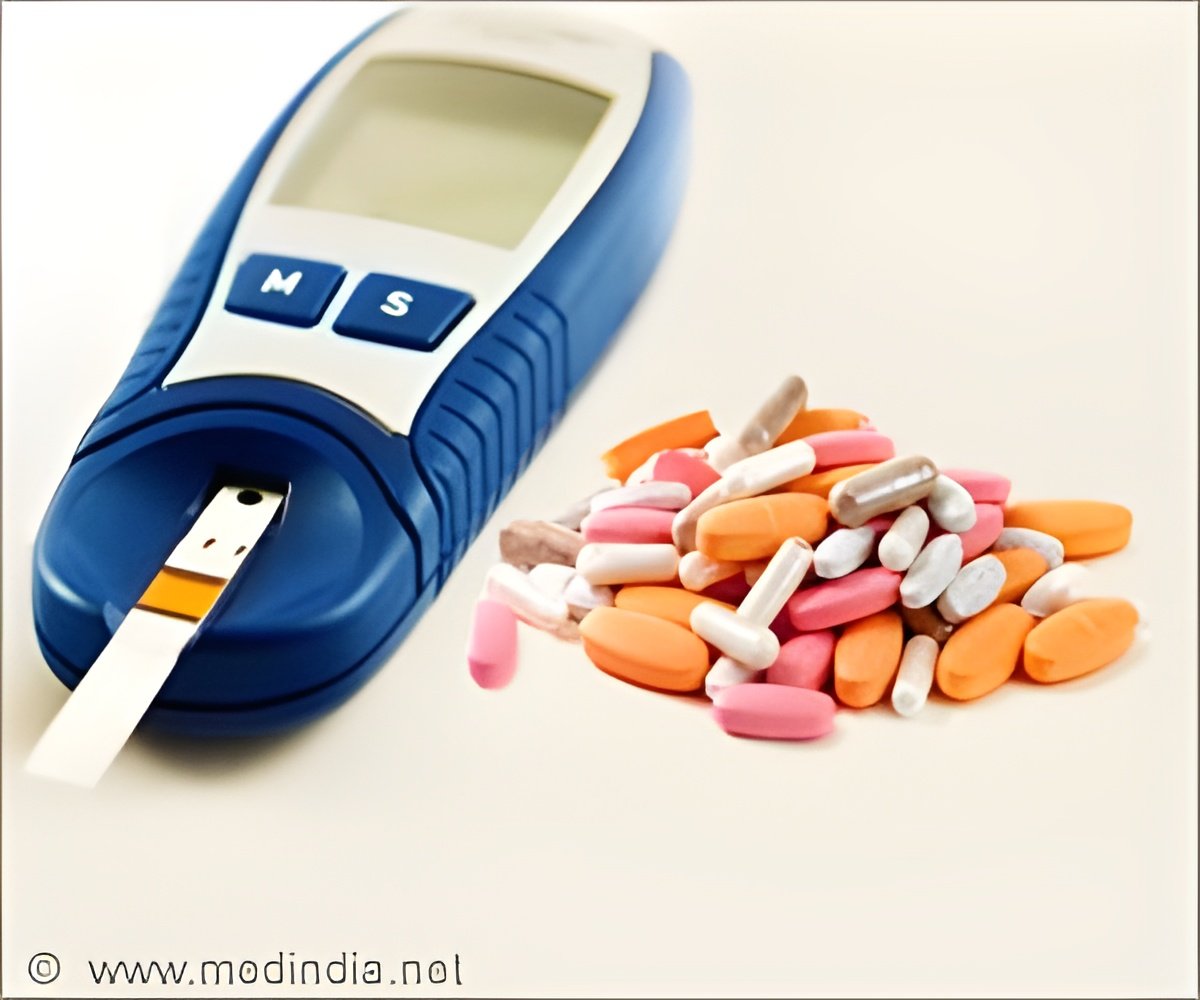For the first time, all patients on dapagliflozin experience an increase in ketones. This may predispose people to developing diabetic ketoacidosis.

‘More than 29 million Americans have diabetes, but only a fraction of them have Type 1 diabetes. Out of every 1,000 American adults, between one and five adults has Type 1 diabetes.’





More than 29 million Americans have diabetes, but only a fraction of them have Type 1 diabetes. Out of every 1,000 American adults, between one and five adults has Type 1 diabetes, according to the Endocrine Society's Endocrine Facts and Figures Report. People who have Type 1 diabetes can experience serious health problems such as heart attacks and strokes, kidney problems and vision problems. "A majority of patients who have Type 1 diabetes do not have their blood glucose levels sufficiently controlled and monitored, and then they are left vulnerable to more complications of the disease," said the study's senior author, Paresh Dandona, MD, PhD, SUNY Distinguished Professor and Chief of endocrinology, diabetes and metabolism in the Department of Medicine at the Jacobs School of Medicine and Biomedical Sciences at the University at Buffalo in Buffalo, NY. "Our research found a triple therapy (insulin, liraglutide and dapagliflozin) approach led to impressive improvements in blood glucose control as well as weight loss. This strategy advances our previous work showing improvements in blood glucose management with the use of liraglutide in combination with insulin".
Thirty people who had Type 1 diabetes participated in the randomized, placebo-controlled clinical trial. The phase IV study's participants were between the ages of 18 and 75, and they were already taking liraglutide and insulin to manage their diabetes. Twenty participants were randomly assigned to receive 10 milligrams of dapaglifozin daily for 12 weeks, and the other 10 received a placebo during that period.
During the study, the participants used continuous glucose monitors (CGMs) to track their blood glucose levels. The researchers downloaded weekly reports from the CGMs to monitor the participants' ability to manage their average blood glucose levels from the past three months, a measurement called HbA1c. The researchers also tracked the participants' weight during the study.
HbA1c declined by 0.66% among participants who received the triple therapy, while there was no significant change in the placebo group. Participants who received the triple therapy lost 1.9 kilograms, on average, and 14 of the 17 people on the triple therapy lost weight. In comparison, the placebo group's body weight remained unchanged.
Advertisement
"Our data also show for the first time that all patients on dapagliflozin experience an increase in ketones," Dandona said. "This may predispose people to developing diabetic ketoacidosis, particularly among those who have a marked reduction in insulin from taking liraglutide together with dapagliflozin and who have consumed too few carbohydrates. On the basis of the data, the dose reduction of insulin should be minimized and the higher dose of dapagliflozin should not be used in such patients. Our study sheds light on potential strategies for preventing diabetic ketoacidosis, but more research is still needed in this area."
Advertisement
Other authors of the study include: Nitesh D. Kuhadiya, Husam Ghanim, Aditya Mehta, Manisha Garg, Salman Khan, Jeanne Hejna, Barrett Torre, Antoine Makdissi, Ajay Chaudhuri and Manav Batra of the Jacobs School of Medicine and Biomedical Sciences at the University at Buffalo in Buffalo, NY.
The research was funded by the Jacobs School of Medicine and Biomedical Sciences at the University at Buffalo.
Endocrinologists are at the core of solving the most pressing health problems of our time, from diabetes and obesity to infertility, bone health, and hormone-related cancers. The Endocrine Society is the world's oldest and largest organization of scientists devoted to hormone research and physicians who care for people with hormone-related conditions.
Source-Newswise














